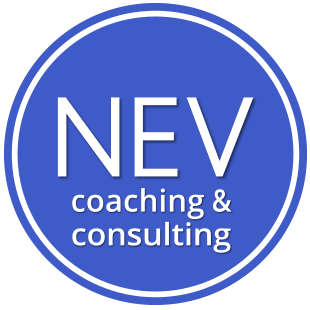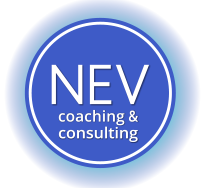 No matter how long I’ve done this work, I’m still often amazed by how certain limiting beliefs continue to rule us. Creating all sorts of struggle, pain, fear, and disappointment.
No matter how long I’ve done this work, I’m still often amazed by how certain limiting beliefs continue to rule us. Creating all sorts of struggle, pain, fear, and disappointment.
And I say “us”, because I’m definitely with you in this.
Despite my knowledge, skills, and achievements thus far (like yours), some habits, perspectives and tendencies continue to trouble me.
And try as I may, certain ones are much harder to let go of and resolve, while others (perhaps even MORE difficult), I somehow manage to improve.
With lots or little effort.
You too may have tirelessly worked to identify, understand and unblock your challenges.
In fact, perhaps you have even consciously, directly and openly recognized them.
Yet for some reason, we continue to fight and struggle against them.
Perhaps, we even come to HATE them.
But they are still there somehow, continuing to cause damage in the form of fear, shame, guilt and many other pains (physical, mental, emotional, even spiritual).
It’s part of the typical struggle of being human in this complex existence we call Life.
And part of the gift of growing.
I guess if it were easy, Life wouldn’t be so rewarding when it is.
And yet what a pain in the ass.
What are your limiting beliefs?
One of the most difficult things about making positive change in our lives, and improving our overall effectiveness, is the fact that some of our most debilitating limiting beliefs have been deeply integrated so long ago, that they are now almost too subconscious to access.
Especially those that were planted in the first 7 years of our lives, the most formidable ones in childhood.
As kids, we receive a wide variety of messages from caregivers and society. Some which are helpful, others not so much.
And even those that help to “civilize” us into productive members of society, usually have two sides.
What teaches you to have good manners may also teach you not to be your authentic self.
What pressures you to do your best may also sow a fear of failure and a need to please.
The messages that try to protect you might also instil fear, judgment and prejudice.
It’s usually a mixed bag.
And as Jungian psychology and many other expert disciplines have taught us: the same things that make you “appropriate and functional” for society during the earlier stages of your life, have later to be revisited, explored, and at times, entirely exterminated, to bring you true effectiveness, peace and joy going forward.
As the successful, wise and content person you were meant to be.
Yes, with all your challenges.
But also, with the full breadth of your authenticity, creativity and potential.
For more insight about how to get started see our previous blog “People DO Change. Here’s How.”
Set out openly to discover your limiting beliefs.
As Jung once famously declared, “I’d rather be whole than good”.
Because we’re all a mix of good and “bad”. Love and kindness and generosity and talent and much more.
Yet also with our fear and rage and anxiety and jealousy and sadness, and yes, much more.
The idea is that, until we learn to fully recognize, accept and integrate ALL parts of ourselves, we cannot hope to find true peace, effectiveness and joy with ourselves and with others.
This is what it means to be WHOLE. Complete. True.
And openness, honesty, curiosity, self-acceptance and self-compassion are KEY.
So, how do we get started?
How to identify underlying limiting beliefs?
The challenge here is that they are largely subconscious or barely within your awareness, until you work to become more openly (and non-judgmentally) aware of them.
In other cases, you may have recognized them partially, but important, deeper elements of the belief are still unseen, unrecognized, or even entirely rejected.
For example: you may have recognized that you have a need to try and please people that comes from some earlier time in your life.
But if you haven’t yet understood that perhaps this tendency comes from an underlying fear that you’re not good enough and that if people see you as you are, they might reject or abandon you, it will be impossible to fully challenge and resolve this belief.
Another example: perhaps you have come to understand that working hard – even too hard – is a belief instilled in you by your family and culture, and that it’s not always necessary to over-prepare and over-deliver as much as you do, causing you strain.
But unless you come to terms with the possible unseen belief that the issue may be your lack of confidence in your abilities and strength and/or your fear of failure and poverty, you may never finally find that work-life balance you’re looking for.
There are countless such examples. And they usually have one thing in common: fear.
Self-worth is often what gets damaged as a result. “Being enough, just as you are.”
Amongst other things.
You will say, like we all do (like I do): “But I have this in hand!” “I’m working on this!”
Of course you are. Or perhaps not so much.
But either way: NO JUDGMENT.
We’re all just doing the best we can and it’s not easy to understand many times what is too much and what is not enough.
But how do you get around it?
See the fear?
Verbalize the pain?
Undo the shame?
First, we GO DEEPER.
Here are a few ways to unearth seemingly unseen limiting beliefs:
1) Pay attention to pain and discomfort in your body
The great majority of bodily discomforts we experience are simply a reflection of our emotional selves trying to be SEEN.
Unless you have a diagnosed disease, are recovering from a recent injury or are struggling with real nutritional deficiencies/toxins, our bodies are most often the wise advisors behind our other struggles.
Even if you have the above, most of what we ascribe to a previous illness, injury or physical imperfection, is still just advisements from our Self that something needs to be considered, changed – and it’s often emotional.
If you don’t believe me, please read this book: “Dr. Sarno’s Top 10 Healing Discoveries” on the amazing healing discoveries of Dr. Sarno, who helped millions of people heal from seemingly impossible pain and discomfort, where other doctors couldn’t.
Including me, and my mother.
Of course, check with your doctor. And take the diagnostics and treatments you deem necessary to ensure you best understand and strengthen your state of health.
But again, the GRAND majority of our physical pain and challenges is a communication from our deeper selves.
To get the message and to be able to work with it effectively, you have to believe this connection between the mind and body.
It doesn’t mean that “it’s just in your head”. In other words: not REAL.
Not at all. It’s absolutely real, it just may not mean what you think it means.
And getting the right message can make all the difference in finding the best and easiest cure to your ailment.
Which is most often: connecting with your Internal Self and tending to the beliefs, habits, and situations that are truly paining you.
2) Bring awareness to moments of emotional discomfort
Most of us are so constantly concerned with doing our best that we often miss the signs of what is genuinely not working for us in our lives.
And we do so because we’re likely operating under one or many of the following messages:
- “I don’t want to be a burden / dramatic.”
- “I’m so grateful and privileged, I just need to focus on the positive.”
- “It’s likely some external or physical problem, not me.”
- “I’m productive and in control so there’s nothing hurting in me.”
- “It’s my problem, so I have to live/deal with it.”
- “I’m doing something wrong – or I AM wrong – so this is my penance.”
And so many, many more.
Now, by no means am I saying that we should obsessively analyze and diagnose every one of our emotional ups and downs. They are indeed a part of daily life and there’s not necessarily some deep dark secret behind every discomfort.
But if an emotional struggle is particularly strong, persistent or new, then it doesn’t hurt to consider it from a place of curiosity and openness. Without attaching to a particular explanation or judgment.
Just ASK yourself “what may this be about?”
And listen closely, but without forcing answers, to what your Inner Self might say.
3) Recognize the impact of your language
There’s not enough thought, care, and insight placed on the enormous impact that language has on our thoughts, feelings and ways of being.
Whether it’s coming from the outside or from within, we often allow ourselves to verbalize and receive all sorts of toxicity, with little understanding of how this can alter our state of mind and heart.
Many years ago, when I was working on Wall Street, we would regularly say “oh, today we got slaughtered!” when we had a particularly tough day at work. And that was like, most of the time. So this statement was ever present in our consciousness.
It was only years later, working with one of my own coaches, that she said “this language is aggressive and affects how you feel and think, so be thoughtful.”
And that stopped me in my tracks. Really?
Yes, really.
Our word is our bond. Our language is our “official” declaration of what we experience.
And it bonds us, first and foremost, to interpretations of what is going on within ourselves and our lives.
It’s meaningfully different to say “today was a challenging day” vs. “we got slaughtered today”.
The first expresses a measured perception of reality. The second expressed a violence done to oneself.
The body, your Self, isn’t stupid, it takes it ALL in.
“I’m so exhausted by the work of caring for my kids” is different than “I HATE my children”.
No one is judging you for saying the latter. Except YOU.
The former recognizes that parenthood can be challenging as you, like others, are justifiably feeling it.
But the second phrase will haunt you, and you will feel guilt and shame for saying it, only to then overcompensate for it without perhaps recognizing that you need and deserve help and a break!
It’s important to say things out loud when we are tapping into our deepest emotions.
And again, NO JUDGMENT. You need to say this to feel the depth and impact of it, so you can work with it going forward.
But if you’re using this kind of damaging, violent language regularly, about yourself or others, it WILL have an impact on how you assimilate that information.
And the strength, empathy, and ingenuity you can tap into for dealing with these challenges – with yourself and the world.
4) What are your habits telling you?
Most of us have some good habits, and others not so great.
And if you’re insisting on always, only having good habits, you may be struggling with the challenging habits of repression, perfectionism and pleasing.
Or not. This is certainly not to suggest that if you’re feeling entirely great about yourself and your life that it’s not true for you.
Simply that many folks are usually questioning, at least some part of their lives, even when things are generally good.
And others are so busy trying to tick all the “boxes” correctly, that even if/when they manage it all, they may still be feeling exhausted, disillusioned, or other similar struggles.
No matter where you range on this scale, one of the areas where you may be seeing a sign of your distress or limiting beliefs could be in your less than favorable habits.
You know what they are, because while they may make you feel good for a while, they inevitably make you feel bad afterwards.
And they may be something more concrete, like smoking or eating habits, or more abstract like emotional reactions or work practices.
Whatever the case, again it’s about leading from a place of open consideration and inquiry, but most importantly, a loving empathy with yourself.
Because it’s only from a place of deep and true self-compassion and self-acceptance, that we can find the strength, courage and creativity to learn from this and make the necessary changes to feel better going forward.
And again, I’m with you on this.
The key questions are:
- “What void are these habits filling for you?”
- “Which beliefs are perpetuating them?”
- “What new, healthier beliefs, can help you manage them with more ease?”
- “How can you restructure a routine or practice to move towards positive change?”
It doesn’t all have to happen right now. But running away from it is running away from the source, which is the underlying limiting beliefs that keep you struggling.
Sometimes, it’s just enough to acknowledge:
“This is how this serves me right now, and this is how it doesn’t”.
Have you started on the path to unlocking your limiting beliefs and really increasing your personal power?
This post is just the beginning. We have so much more to say on this, as I’m sure you do.
Stay tuned! And in the meantime, please always feel free to contact me for a confidential conversation about your own experiences.
Because today is YOUR day, to get FREE.


